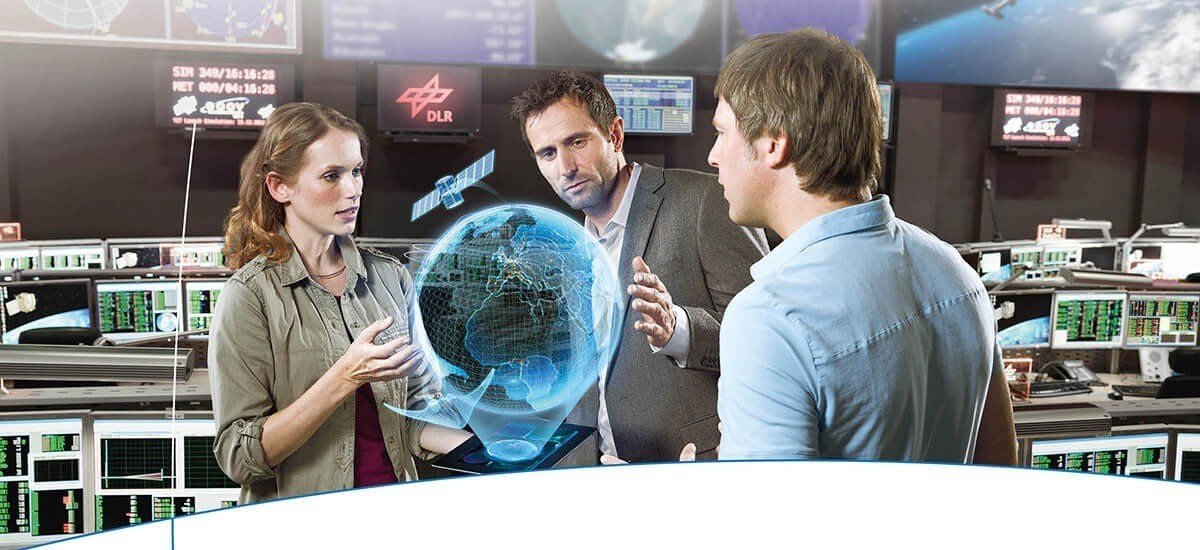Name of job:
Physicist, Mathematician, Aerospace or Mechanical Engineer or Equivalent (f/m/d)
Data-driven Turbulence Modeling for Industrially Relevant Flows
Company:
German Aerospace Center (Deutsches Zentrum für Luft- und Raumfahrt; DLR)
Location:
The DLR Institute of Aerodynamics and Flow Technology in Göttingen, Germany
Type of work:
Scientific Activity/ Project Work (WissenschaftlicheTätigkeit/ Projektarbeit)
What to expect:
The Institute of Aerodynamics and Flow Technology is a leading research institute in the field of aerodynamics/aeroacoustics of aircraft and aerothermodynamics of space vehicles.
The C²A²S²E department develops numerical methods for multidisciplinary simulation and optimization of air vehicles. In addition to physical modeling of complex flows and the development of modern numerical algorithms, our research activities cover the software-based integration of all relevant disciplines, the development of efficient optimization strategies as well as surrogate modeling based on higher fidelity methods.
New technologies in aviation promise drag reduction up to 50% leading to significant fuel savings. To mature these technologies, a new generation of intelligent aerodynamic simulation techniques is needed. A major challenge in aerodynamic simulation is the prediction of turbulent flows. These predictions are based on the solution of the Reynolds-averaged Navier-Stokes (RANS) equations in conjunction with turbulence models, but they still suffer from modeling errors leading to an uncertainty about the predictive accuracy, compelling designers to incorporate substantial safety margins. Such conservatism often compromises the efficiency of the designed vehicles.
The emergence of machine learning (ML) has opened up new opportunities for turbulence modeling to reexamine and revise simplifying assumptions. An important step towards the industrial applicability of these so-called data-driven turbulence models is to ensure that the trained RANS models will not deteriorate the prediction for flows or for flow phenomena that were not part of the model training.
Current research is directed towards tailored data-driven models for certain isolated flow phenomena which are locally blended and activated or de-activated in more complex flow fields.
We’re offering a position to extend and apply our data-driven workflow to complex flow phenomena such as turbulent boundary layers in strong pressure gradients and surface curvature and three- dimensional separated flows. This goal includes the selection of training data from various testcases and the development of a robust training process. The final aim is to demonstrate the improved predictive accuracy of the new model for complex aircraft configurations.
Requirements:
- university degree (Master/Diploma) in engineering (aerospace engineering, mechanical engineering, or equivalent) or science such as (numerical) mathematics, (computational) physics, or equivalent
- good knowledge in programming languages (C/C++, and Python)
- knowledge in numerical flow simulation using computational fluid dynamics (CFD) and the simulation of turbulent flows coupling of CFD codes
- practical knowledge in software tools used for CFD (CFD grid generation, visualization)
What we offer:
DLR stands for diversity, appreciation and equality for all people. We promote independent work and the individual development of our employees both personally and professionally. To this end, we offer numerous training and development opportunities. Equal opportunities are of particular importance to us, which is why we want to increase the proportion of women in science and management in particular. Applicants with severe disabilities will be given preference if they are qualified.
Further information:
- Starting date: 01.01.2025
- Duration of contract: 3 Jahre
- Type of employment: Full-time (part-time possible)/ Vollzeit (Teilzeitmöglich)
- Remuneration: Je nach Qualifikation und Aufgabenübertragung bis Entgeltgruppe 13 TVöD.
- Vacancy-ID: 99063
CLOSED
Enter the fascinating world of the German Aerospace Center (Deutsches Zentrum für Luft- und Raumfahrt; DLR) and help shape the future through research and innovation! We offer an exciting and inspiring working environment driven by the expertise and curiosity of our 11,000 employees from 100 nations and our unique infrastructure. Together, we develop sustainable technologies and thus contribute to finding solutions to global challenges.
Would you like to join us in addressing this major future challenge? Then this is your place!


